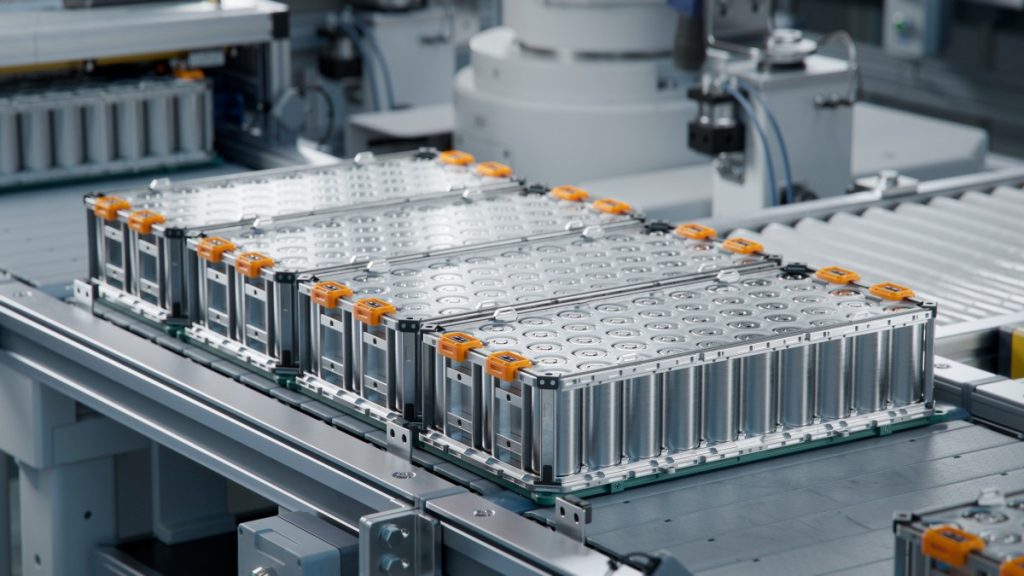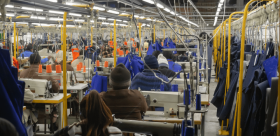Longer term vision is vital to decarbonise UK manufacturing – Inside track
3 min read
This is the third blog in our short series of expert perspectives on UK industrial strategy. This post is by Faye Skelton, head of policy at Make UK.
In 2019, the United Kingdom set a legally binding target to reduce its greenhouse gas emissions and attain ‘net zero by 2050’, making it the first major economy to do so. It is also the first industrialised country to have almost entirely phased out coal in the last ten years. Today, 42 per cent of the UK’s energy is derived from renewable energy sources, particularly wind power. While it has been recognised as a global leader in tackling climate change, there are now concerns about the UK’s ability to meet future targets, despite its strong performance in the past.
The government’s message about the importance of reaching net zero has dialled down, as evidenced by the discontinuation of the Energy Efficiency Taskforce and the prime minister’s net zero speech in September, with a relaxing of net zero policies. And, in June 2023, the Climate Change Committee expressed concern about the “worryingly slow” progress on meeting emissions targets. It reported that confidence that the UK would meet emissions targets in the 2030s had “markedly declined” from a year earlier.
Most manufacturers think net zero is a priority
Despite this, the manufacturing sector’s intentions to reduce its emissions are going from strength to strength. Make UK research has found that an overwhelming majority (92 per cent) of manufacturers see the UK’s transition to net zero as a priority for their businesses.
Indeed, over two thirds (69 per cent) of manufacturers see net zero as a commercial opportunity for their businesses. Manufacturers see net zero as giving them potential to tap into new markets, access green finance, attract the next generation of talent, produce sustainable goods and services demanded by customers, and provide the technologies to solve the climate change challenge.
Manufacturing is integral to reaching net zero
The manufacturing sector and its major role in net zero is sometimes overlooked. It has both a role to play in decarbonising its own operations, and in the wider decarbonisation of the economy by designing and manufacturing the products and services that all others will need for the low carbon economy to work. For instance, developing the low carbon hydrogen infrastructure and equipment needed to help decarbonise buildings and transport emissions; the development and manufacture of new electric vehicles; innovation in the carbon capture, utilisation and storage (CCUS) space will be pivotal to cut residual emissions from hard to decarbonise industries; and new wind and nuclear power machinery and equipment will be essential for achieving national low carbon electricity targets.
Although there are good intentions from both the government and the manufacturing sector, more needs to be done to put plans into action. Pressure to accelerate low carbon industry has increased significantly in 2023, mainly due to the US Inflation Reduction Act and the EU’s Net Zero Industry Act.
A long term vision will drive progress
Ultimately, the missing piece of the puzzle for UK manufacturing is a long term industrial strategy. Although the government has published its Advanced Manufacturing Plan, there is still a need for a longer term vision that builds on the investment appetite of the sector and takes advantage of net zero as a way of boosting the economy.
Manufacturers need a framework to guide them, and while the Advanced Manufacturing Plan is a good starting point, it should be developed further so the entire manufacturing sector, and not just the flagship sectors dominated by major manufacturers, can thrive in a low carbon economy.
Greater attention should be given to support smaller supply chain businesses providing crucial components to larger businesses in sectors such as food and drink, furniture and textiles. These businesses need help to achieve net zero and take advantage of its benefits, including reducing energy usage and costs, cutting emissions and boosting productivity.
The UK’s strength lies in the advanced, high value technologies that aid decarbonisation. It must embrace this with a long term industrial plan for economic growth and reducing emissions, to avoid going backwards.





